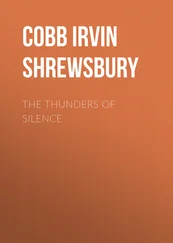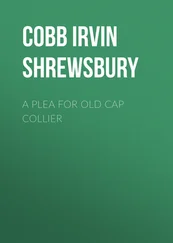Irvin Cobb - Local Color
Здесь есть возможность читать онлайн «Irvin Cobb - Local Color» — ознакомительный отрывок электронной книги совершенно бесплатно, а после прочтения отрывка купить полную версию. В некоторых случаях можно слушать аудио, скачать через торрент в формате fb2 и присутствует краткое содержание. Жанр: foreign_prose, на английском языке. Описание произведения, (предисловие) а так же отзывы посетителей доступны на портале библиотеки ЛибКат.
- Название:Local Color
- Автор:
- Жанр:
- Год:неизвестен
- ISBN:нет данных
- Рейтинг книги:5 / 5. Голосов: 1
-
Избранное:Добавить в избранное
- Отзывы:
-
Ваша оценка:
- 100
- 1
- 2
- 3
- 4
- 5
Local Color: краткое содержание, описание и аннотация
Предлагаем к чтению аннотацию, описание, краткое содержание или предисловие (зависит от того, что написал сам автор книги «Local Color»). Если вы не нашли необходимую информацию о книге — напишите в комментариях, мы постараемся отыскать её.
Local Color — читать онлайн ознакомительный отрывок
Ниже представлен текст книги, разбитый по страницам. Система сохранения места последней прочитанной страницы, позволяет с удобством читать онлайн бесплатно книгу «Local Color», без необходимости каждый раз заново искать на чём Вы остановились. Поставьте закладку, и сможете в любой момент перейти на страницу, на которой закончили чтение.
Интервал:
Закладка:
With her handbag on her arm she passed out into the hall. Across the hall a Jewish family lived – by name, the Levinski family – consisting of a father who was a push-cart peddler, a gross and slattern mother who was continually occupied with the duties of being a mother, and any number of small Levinskis. In answer to her knock at their door, Mrs. Levinski came, a shapeless, vast shape in her night dress, bringing with her across the threshold strong smells of stale garlic, soiled flannel and cold fried carp. Marie had a nodding acquaintance with this neighbour of hers and no more.
“My sister, she is sick,” she told Mrs. Levinski. “And I must go out. Please, will you listen? If she should awake and call out for me, you will please to tell her I am gone but soon will be back again. If you please?”
Mrs. Levinski said she would, and to show she meant it opened wide her door before she returned to her household duties.
For November the weather was warm, but it was damp and would be damper. A fine drizzle was falling as Marie Misereux came to the lower hallway entrance and looked out into the night; and East Thirteenth Street, which is never entirely empty, was almost empty. She hesitated a moment, with her left hand clenched tight against her breast, and then stepped out, heading westward. At the first avenue crossing she came upon a man, a fairly well-dressed man, who stood below the stoop of a private house that had been converted into some sort of club, as if undecided in his own mind whether to go in or to stay out. She walked straight up to him.
“Will you go with me, m’sieur?” she said.
He peered at her from under his hatbrim. Almost over them was a street lamp. By its light he saw that her face was dead white; that neither her lips nor her cheeks were daubed with cosmetics, and that her lips were not twisted into the pitiable, painted smile of the streetwalker. Against the smooth fulness of her dress her knotted left hand made a hard, white clump. Her breasts, he saw, heaved up and down as though she had been running and her breath came out between her teeth with a whistling sound. Altogether she seemed most oddly dressed and most oddly mannered for the part she played.
“You want me to go with you?” he asked, half incredulously, half suspiciously, still staring hard.
“If – if you will be so good.”
“Do you need the money that bad?”
“Assuredly, m’sieur,” she said with a simple, desperate directness. “Why else would I ask you?”
“Say,” he said almost roughly, “you better go on home. I don’t believe you belong on the streets. Here!”
He drew something that was small and crumply from a waistcoat pocket, and drawing a step nearer to her he shoved it between two of the fingers of her right hand.
“Now, then,” he said, “you take that and hustle on back home.”
He laughed, then, shamefacedly and in a forced sort of way, as though embarrassed by his own generosity, and then he turned and went quickly up the steps and into the club house.
She looked at what he had given her. It was a folded dollar bill. As though it had been nasty to the touch, she dropped it and rubbed her hand upon her frock, as if to cleanse it of a stain. Then, in the same instant nearly, she stooped down and picked up the bill from the dirty pavement and kissed it and opened her black handbag. Except for a few cents in change, the bag was empty. Except for those few cents and a sum of less than ten dollars yet remaining in the savings bank, the two dollars she had given the lame doctor was all the money she had in the world. She tucked the bill up in still smaller compass and put it in the bag. She had made the start for the fund she meant to have. It was not charity. In the sweat of her agonized soul she had earned it.
She crossed over the first bisecting avenue to the westward, and the second; she passed a few pedestrians, among them being a policeman trying door latches, a drunken man whose body swayed and whose legs wove queer patterns as he walked, and half a dozen pale, bearded men who spoke Yiddish and gestured volubly with their hands as they went by in a group. At Third Avenue she turned north, finding the pavements more thickly populated, and just after she came to where Fourteenth Street crosses she saw a heavily built, well-dressed man in a light overcoat, coming toward her at a deliberative, dawdling gait. She put herself directly in his path. He checked his pace to avoid a collision and looked at her speculatively, with one hand fingering his moustache.
“Will you go with me?” she said, repeating the invitation she had used before.
“Where to?” he said, showing interest.
“Where you please,” she said in her halting speech.
“You’re on,” he said. He fell in alongside her, facing her about and slipping a hand well inside the crook of her right arm.
“You – you will go with me?” she asked. Suddenly her body was in a tremble.
“No, sister,” he stated grimly, “I ain’t goin’ with you but you’re sure goin’ with me.” And as he said it he tightened his grip upon her forearm.
He had need to say no more. She knew what had happened. She had not spent two years and better in a New York tenement without learning that there were men of the police – detectives they called them in English – who wore no uniforms but went about their work apparelled as ordinary citizens. She was arrested, that was plain enough, and she understood full well for what she had been arrested. She made no outcry, offered no defence, broke forth into no plea for release. Indeed her thought for the moment was all for her half-sister and not for herself. So she said nothing as he steered her swiftly along.
At a street light where a patrol telephone box of iron was bolted to the iron post the plain-clothes man slowed up. Then he changed his mind.
“Guess I won’t call the wagon,” he said. “I happen to know it’s out. It ain’t far. You and me’ll walk and take the air.” He turned with her westward through the cross street. Then, struck by her silence, he asked a question:
“A Frenchy, ain’t you?”
“Yes,” she told him. “I am French. Where – where are you taking me, m’sieur? Is it to the prison – the station house?”
“Quit your kiddin’,” he said mockingly. “I s’pose you don’t know where we’re headin’? Night court for yours – Jefferson Market. Right over here across town.”
“They will not keep me there long? They will permit me to go if I pay a fine, eh? A small fine, eh? That is all they will do to me, is it not so?”
He grunted derisively. “Playin’ ignorant, huh? I s’pose you’re goin’ to tell me now you ain’t never been up in the night court before?”
“No, no, m’sieur, never – I swear it to you. Never have I been – been like this before.”
“That’s what they all say. Well, if you can prove it – if you ain’t got any record of previous complaints standin’ agin’ you, and your finger prints don’t give you away – you’ll get off pretty light, maybe, but not with a fine. I guess the magistrate’ll give you a bit over on the Island – maybe thirty days, maybe sixty. Depends on how he’s feelin’ to-night.”
“The Island?”
“Sure, Blackwell’s Island. A month over there won’t do you no harm.”
“I cannot – you must not take me,” she broke out passionately now. “For thirty days? Oh, no, no, m’sieur!”
“Oh, yes, yes, yes!” He was mimicking her tone. “I guess you can stand doin’ your thirty days if the rest of these cruisers can. If you should turn out to be an old offender it’d likely be six months – ”
He did not finish the sentence. With a quick, hard jerk she broke away from him and turned and ran back the way she had come. She dropped her handbag and her foot spurned it into the gutter. She ran straight, her head down, like a hunted thing sorely pressed. Her snug skirt hampered her though. With long strides the detective overtook her. She fought him off silently, desperately, with both hands, with all her strength. He had to be rough with her – but no rougher than the emergency warranted. He pressed her flat up against a building and, holding her fast there with the pressure of his left arm across her throat, he got his nippers out of his pocket. Another second or two more of confused movement and he had her helpless. The little steel curb was twined tight about her right wrist below the rumpled white cuff. By a twist of the handles which he held gripped in his palm he could break the skin. Two twists would dislocate the wrist bone. A strong man doesn’t fight long after the links of the nippers start biting into his flesh.
Читать дальшеИнтервал:
Закладка:
Похожие книги на «Local Color»
Представляем Вашему вниманию похожие книги на «Local Color» списком для выбора. Мы отобрали схожую по названию и смыслу литературу в надежде предоставить читателям больше вариантов отыскать новые, интересные, ещё непрочитанные произведения.
Обсуждение, отзывы о книге «Local Color» и просто собственные мнения читателей. Оставьте ваши комментарии, напишите, что Вы думаете о произведении, его смысле или главных героях. Укажите что конкретно понравилось, а что нет, и почему Вы так считаете.












